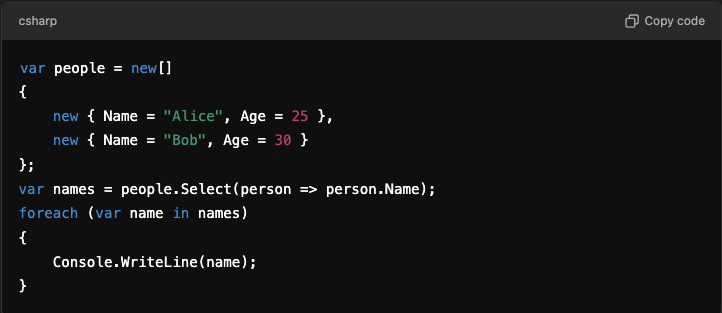What is LINQ Select in. NET Framework
LINQ (Language Integrated Query) is one of the most powerful features in. Simplifying querying data on NET. The Select operator is one of the core components of LINQ that applies a transformation over a collection. It is often used for projecting data to a different shape which makes it one of the most used techniques by the developers.
How it Works
The Select operator selects and transforms each element in a collection. This approach applies to all data sources such as arrays, lists, databases, etc. It takes the collection as input and returns a new collection with some modified data. For example, extract individual fields from objects or compute values on the fly.
Syntax & Example
The LINQ Select syntax is super simple. Here’s a basic example:

Example: In this case, the Select operator takes in the numbers array and produces a collection of its elements raised to the 2nd power (squared). LINQ also has a very readable and efficient syntax.
More Advanced Usage
The Select operator can be very powerful in dealing with complex data structures. It is often used by developers to project fields from objects, or even to create anonymous types. Here’s a sample with a custom class:

Here the Select operator selects the Name property of every object in the collection.
LINQ Select versus LINQ Where
Whereas Select manipulates data, the Where operator filters it. Using both the operators combined, allows the operators to create advanced queries. For example:

Here, Where filters numbers before Select computes their squares.
Benefits of LINQ Select for Developers
LINQ Select offers several advantages. It reduces the need for verbose loops, improves code readability, and ensures type safety. Moreover, it integrates seamlessly with various data sources, from in-memory collections to databases like SQL Server.
Common Mistakes and Tips
Avoid overusing anonymous types: While useful, they can complicate debugging and maintenance.
Understand deferred execution: LINQ queries execute only when enumerated, which can impact performance.
Use method chaining wisely: Combining multiple LINQ operators can make code less readable if overused.


